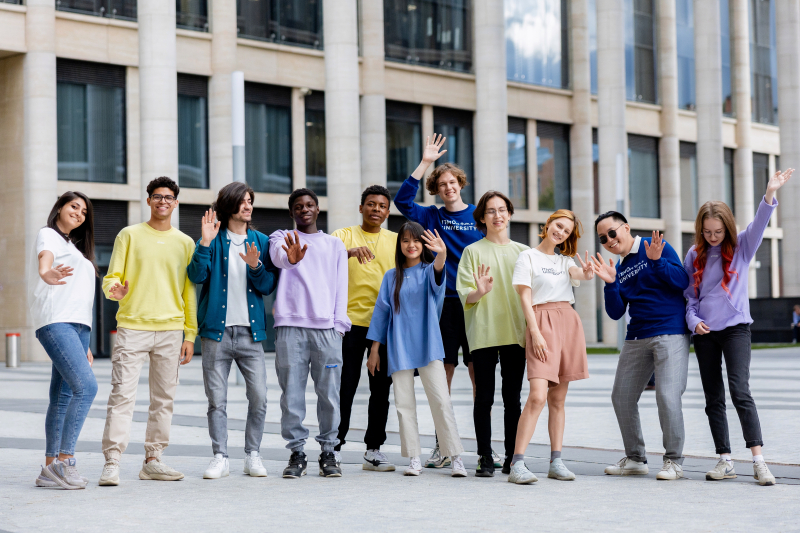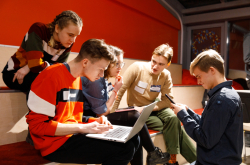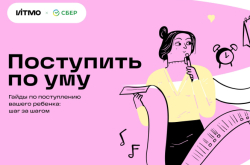How to prepare your child for life in another country
Over 50% of ITMO students come from other cities or countries. A special issue of the project addresses all the related topics: from settling into a dormitory and getting all the necessary documents to budgeting tips for students.
Tips from Sberbank & ITMO:
- For parents: try to find a balance between wanting to control your child’s every step and letting them deal with everything on their own. Be close and let them know they can reach out with any issue – and expect understanding and support from you.
- For parents and students: remember that ITMO has its own Medical, Psychological, and Social Assistance Center where students can come for advice.
- For parents and students: in advance, peruse the lists of necessary documents needed upon or shortly after arrival and for moving into a dormitory.
- For students: try to meet your curators and adaptors right away; visit the Student Services Office and International Office to learn where you can turn to with any issues; look for like-minded people not only in your student group, but also by participating in various events and joining student clubs.
- For parents and students: make use of various student discounts (including the student travel card) to help with planning your budget.
More from ITMO.NEWS:
Fish Out of Water: Navigating the Challenges of Studying Abroad
ITMO Student’s Quick Guide to Life in the City
Experiences of other students – in exclusive interviews

Credit: forparents.itmo.ru
How students can start earning money alongside their studies
Part-time jobs. According to surveys, over half of all students combine their studies with a job. Having a part-time job is an opportunity for students to become more independent from their parents, while acquiring interesting working experience. International students finding employment at the university won’t need a work permit; however, if they find positions outside the university, a permit is required. Another article (in Russian) by ITMO and Sberbank offers advice on choosing a company for internship and making your work benefit your studies.
Tips from Sberbank & ITMO:
- Internships and part-time job placements can be in the same field as your educational program; they can also be a means to broaden one’s horizons. A physics student may choose to pick up some research experience by working as an assistant at a lab. They could also choose to try their hand at organizing or hosting a student event to practice their public speaking and management skills.
- It might be wise not to rush to find a job in the first year of studies. Instead, students can gain experience by participating in hackathons and competitions, volunteering at various projects, working part-time at a lab, or doing internships.
- The optimal time to start looking for the “perfect” employer is in the second or third year. Students can start developing their pet projects, respond to junior job postings, and solve test tasks. This is easiest with popular job posting platforms, such as hh.ru, SuperJob, and Jobby. At this stage, it can be beneficial to openly state one’s desire to find a job, reach out to dream companies, and expand one’s network.
- When planning their extracurricular activities and internships or looking for jobs, students should consider their goals: it’s better to look for projects that will broaden and strengthen the knowledge one gets at university.
- It’s best to decide on non-negotiables from the start. Would you agree to work at a great company if you didn’t get along with any of your colleagues? Would you agree to commute to the other part of the city for your job?
- At ITMO, students can opt to study in a program developed by one of the university’s industrial partners (Sberbank, Napoleon IT, Gazprom Neft, etc.) and be certain to gain relevant industry experience alongside their classes.
- With any career-related questions, ITMO students can reach out to the Career Center for consultations and advice.
More from ITMO.NEWS:

Credit: forparents.itmo.ru
Scholarships & stipends. Often students find it hard to start working in their first year – but they can actually make quite a lot in stipends and scholarships (linked article in Russian).
Data from Sberbank & ITMO:
Talented first-years who enrolled at ITMO via various student competitions can expect to receive up to 45,000 rubles in stipends per month through a combination of special stipends for first-years, a state stipend, and an extended stipend.
Senior students who are active in research and other activities can also receive around 38,000 rubles per month thanks to a combination of different stipends.
Where to look for stipends, scholarships and related competitions:
Dedicated page by ITMO’s Student Services Office




